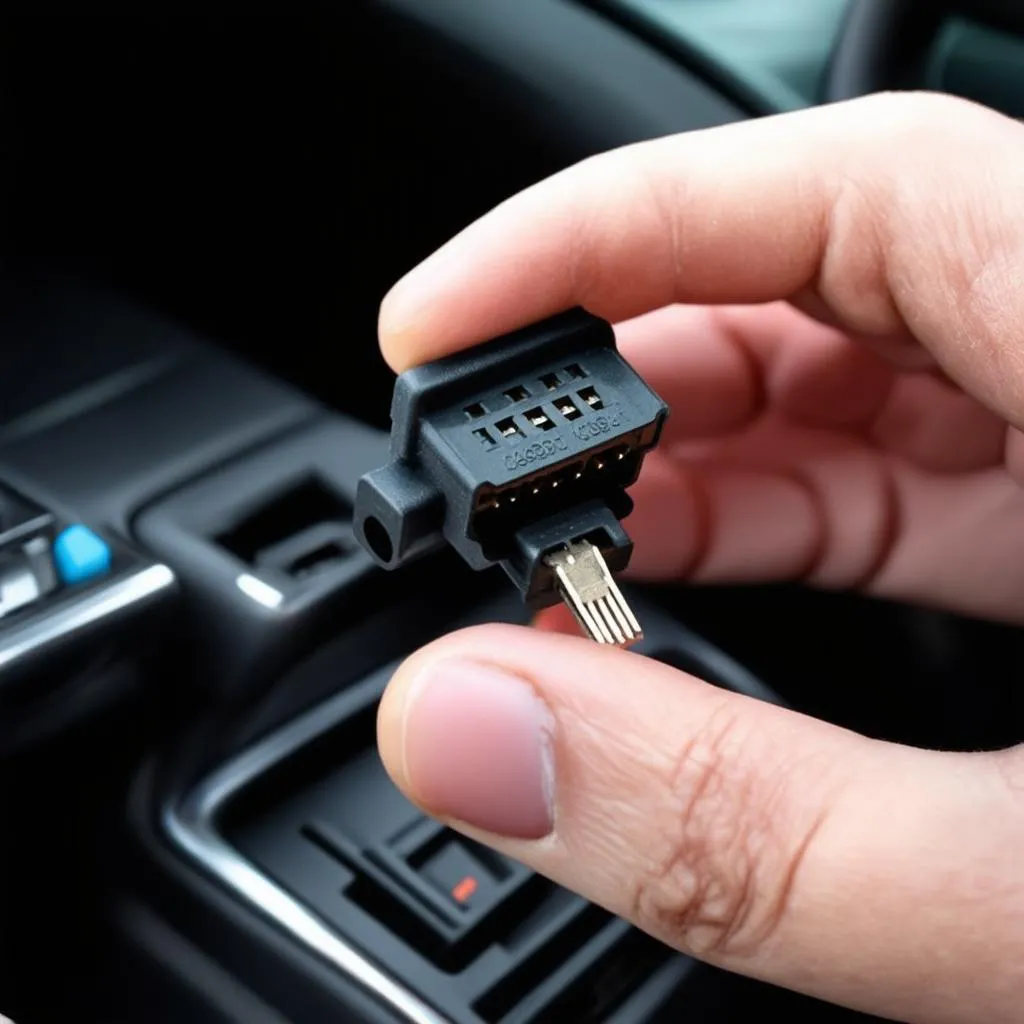You’re cruising down the highway, late for a crucial meeting. As you glance at the speedometer, you can’t help but feel like your car is holding back. It’s like there’s untapped power hidden beneath the hood, just waiting to be unleashed. You’ve heard whispers about OBD performance chips – small devices that promise to boost your car’s horsepower and fuel efficiency with just a simple plug-in. Could this be the answer to your automotive prayers, or are these chips just a load of hot air?
Understanding the Allure of Easy Power
Let’s face it; the idea of squeezing extra performance out of your car with a device that costs less than a tank of gas is enticing. It’s like finding a shortcut to automotive nirvana. But before you rush out to buy an OBD performance chip, let’s take a deep dive into how these chips claim to work and whether those claims hold water.
OBD Performance Chips: Under the Hood
OBD performance chips plug into your car’s OBD-II port, which is typically located under the dashboard on the driver’s side. This port is the gateway to your car’s computer, which controls various aspects of your engine’s performance, including fuel injection, ignition timing, and boost pressure (for turbocharged engines).
These chips claim to work by modifying the signals sent between your car’s computer and its engine. By adjusting parameters like fuel-to-air ratio and ignition timing, they supposedly optimize your engine’s performance for increased horsepower and torque. Some manufacturers even claim that their chips can improve your fuel economy by making your engine run more efficiently.
 OBD performance chip being plugged into car's OBD-II port
OBD performance chip being plugged into car's OBD-II port
The Harsh Reality: Do They Deliver on Their Promises?
While the idea of a simple plug-and-play performance upgrade is alluring, the reality is often far less impressive.
1. Generic Tuning vs. Customized Performance: Most OBD performance chips on the market offer generic tuning maps that are not tailored to your specific car model, engine, or driving conditions. This one-size-fits-all approach can lead to suboptimal performance and, in some cases, even harm your engine.
2. The Importance of Dyno Testing: Reputable tuners use dynamometer testing to measure a car’s horsepower and torque output before and after installing a performance chip. This data provides concrete evidence of any performance gains. Unfortunately, many OBD performance chip manufacturers rely on anecdotal evidence and often exaggerated claims instead of scientific testing.
3. Potential Risks to Your Engine: By overriding your car’s factory settings, OBD performance chips can put additional stress on your engine and transmission. If the chip’s tuning is too aggressive, it can lead to detonation, increased engine wear, and potentially even catastrophic engine failure.
4. Fuel Economy Claims Often Fall Flat: While some users report slight improvements in fuel economy, these gains are usually marginal and can vary significantly depending on driving habits and conditions.
Expert Opinions and Consumer Experiences
“OBD performance chips are like the fast food of the automotive tuning world,” says automotive engineer and performance tuning expert, Dr. Emily Carter, author of “The Art and Science of Engine Tuning.” “They might offer a quick and seemingly easy fix, but they rarely deliver on their promises and can potentially harm your engine in the long run.”
Online forums and review websites are filled with mixed experiences from OBD performance chip users. While some report minor performance gains, others complain about no noticeable difference or even negative side effects like engine knocking and reduced fuel economy.
Feng Shui and the Pursuit of Automotive Harmony
Just as Feng Shui seeks to create harmony and balance in our living spaces, achieving optimal car performance requires a holistic approach. Instead of relying on quick fixes, focus on maintaining your car’s overall health through regular servicing, using high-quality fuel and fluids, and driving responsibly.
 Mechanic inspecting a car engine with a diagnostic tool
Mechanic inspecting a car engine with a diagnostic tool
When OBD Performance Chips Might Make Sense
While generally not recommended for most car owners, OBD performance chips might offer some benefits in specific situations:
-
Older Vehicles with Outdated Engine Management Systems: Cars with older engine management systems might see slight performance improvements with an OBD performance chip, as these chips can sometimes bypass limitations of outdated technology. However, it’s crucial to choose a reputable brand and consult with a qualified mechanic before installation.
-
Off-Road Use: In off-road situations where fuel economy is not a primary concern, OBD performance chips can sometimes be used to adjust engine parameters for specific terrains and driving conditions.
Exploring Alternative Performance Upgrades
If you’re serious about boosting your car’s performance, several proven and reliable options exist:
-
ECU Tuning: Unlike generic OBD performance chips, ECU tuning involves reprogramming your car’s engine control unit with custom software tailored to your specific car model and driving style.
-
Cold Air Intake Systems: Upgrading your car’s air intake system can increase airflow to your engine, resulting in modest horsepower gains.
-
Performance Exhaust Systems: Replacing your car’s restrictive factory exhaust system with a performance-oriented system can improve exhaust flow, potentially increasing horsepower and giving your car a more aggressive exhaust note.
FAQs About OBD Performance Chips:
Q: Will an OBD performance chip void my car’s warranty?
A: Installing an aftermarket performance chip, including an OBD performance chip, can potentially void your car’s warranty, especially if the chip is found to have caused damage to your engine or other components.
Q: Are OBD performance chips legal?
A: The legality of OBD performance chips varies depending on your location and local regulations. In some areas, modifying your car’s emissions system is illegal, even if it results in increased performance.
Q: Can I install an OBD performance chip myself?
A: While physically installing an OBD performance chip is relatively simple, it’s generally recommended to have a qualified mechanic install it to ensure proper installation and avoid potential issues.
Need Help Navigating the World of Automotive Diagnostics?
Finding the right tools and information to diagnose and optimize your car’s performance can be challenging. At techcarusa.com, we’re dedicated to providing you with the resources you need to make informed decisions about your car’s health.
Contact our team of automotive experts on WhatsApp at +84767531508 for personalized support and guidance on diagnostic tools, software, and performance upgrades.
Making Informed Decisions for Your Car
Ultimately, the decision of whether or not to use an OBD performance chip is a personal one. While they might seem like a tempting shortcut to increased performance, it’s essential to weigh the potential risks and benefits carefully. Remember, there’s no substitute for proper car maintenance, responsible driving, and consulting with qualified automotive professionals when considering performance upgrades.
We encourage you to explore our website for more in-depth articles and resources on various automotive topics. And if you have any questions or need further assistance, don’t hesitate to reach out to our team. Happy driving!